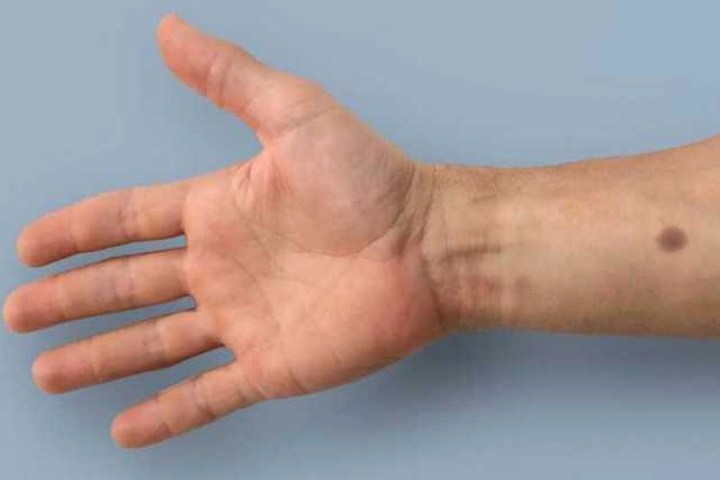
Cancer is one of the leading causes of death in first-world countries. While not every type of cancer can be cured, however, spotting it early can help patients get the treatment they need. That’s something researchers from ETH Zurich in Switzerland think they may be able to assist with — courtesy of a smart new biomedical “tattoo” that is able to detect 40 percent of cancer types, including colon, breast and prostate cancer. Its creators claim that the tattoo, which looks like a beauty spot, is able to identify these cancers at an early non-symptomatic stage while they have a cure rate of more than 90 percent.
“Colon cancer, breast cancer, and prostate cancer disrupt the body’s calcium homeostasis and lead to higher blood calcium levels,” Martin Fussenegger, professor in the Department of Biosystems Science and Engineering, told Digital Trends. “The biomedical tattoo consists of microencapsulated human cells that detect persistent high blood calcium levels, and correspondingly produce the sun-tan pigment melanin which [results in] a visible beauty spot in the event of cancer development.”
Fussenegger suggests such a sensor could be used as a handy diagnostic device for everyone, especially those with a genetic predisposition to certain cancer types. He also noted that, while cancer was the focus of the group’s proof-of-concept study, the biomedical tattoo could theoretically be repurposed to track other medical conditions which develop over time. These could include neurodegenerative disorders like Parkinson’s disease or Alzheimer’s.
“We have tested the biomedical tattoo successfully in mice suffering from breast and colon cancer,” he said. “Those mice developed a visible skin tattoo. We have also confirmed that the biomedical tattoo is visible in pigskin, a skin type that is very similar to the human skin.”
Next up, the team hopes to reproduce the results in larger animals such as mini-pigs or non-human primates, before teaming up medical specialists to prepare clinical trials.
This isn’t the first time we have heard about tattoos able to monitor health measurements. A University of Texas project we wrote about last year created graphene-based tattoos which can be laminated onto skin using water, much like a temporary tattoo. Unlike regular tattoos, these can then function as sensors for vital signs such as the electrical signals from the body, skin temperature, and hydration. A similar principle has also been used to develop special paint coatings which change color when a building is in need of repair.
The ETH Zurich biomedical tattoo project was recently published in the journal Science Translational Medicine.


